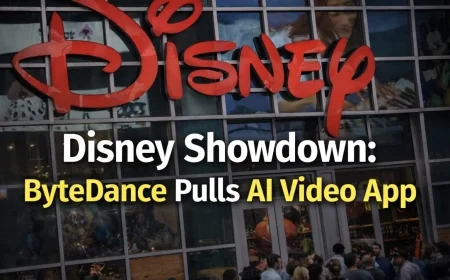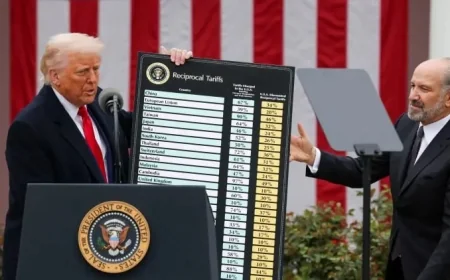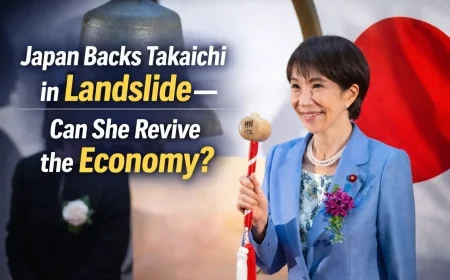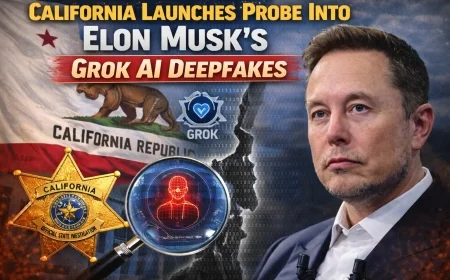Sundar Pichai said that the surge in investment in artificial intelligence (AI) has been an "extraordinary moment," but that there is also some "irrationality" in the current AI boom.
This comes amid fears of a bubble bursting in Silicon Valley and surrounding areas, as the value of AI technology companies has skyrocketed in recent months and companies are making significant investments in this emerging industry.
Asked whether Google would be immune to the impact of an AI bubble burst, Mr. Pichai said the tech giant could weather the potential storm, but he also issued a warning.
He said, "I think no company will be immune, including us."
In a wide-ranging exclusive interview at Google's California headquarters, he also discussed declining energy needs, climate goals, investment in the UK, the accuracy of its AI models, and the impact of the AI revolution on jobs.
This interview comes at a time when scrutiny on the state of the AI market has never been more intense.
Alphabet's share value has doubled to $3.5 trillion (£2.7 trillion) in seven months as market confidence grows in the search giant's ability to fend off the threat posed by ChatGPT owner OpenAI.
A particular focus is on Alphabet's development of specialized superchips for AI, competing with Jensen Huang-led Nvidia, whose valuation recently reached $5 trillion for the first time in the world.
As valuations rise, some analysts have expressed doubts about the complex web of $1.4 trillion deals surrounding OpenAI, which is expected to generate less than a thousandth of the planned investment this year.
This has raised fears that stock markets are heading for a repeat of the dotcom boom and bust of the late 1990s. Before the bubble burst in early 2000 and many stocks plummeted, the value of early internet companies skyrocketed amid a wave of optimism about the new technology.
This led to some companies going bankrupt, resulting in job losses. A decline in share prices can also impact the value of people's savings, including their pension funds.
Recalling comments made by US Federal Reserve Chairman Alan Greenspan in 1996, warning of "irrational exuberance" in the market well before the dotcom crash, Mr. Pichai said that industries can "overshoot" during such investment cycles.
He said, "We can look at the internet right now. There was clearly a lot of investment, but none of us would question whether the internet was profound."
"I expect AI to be the same. So I think it's rational, and at a time like this, there are elements of irrationality."
His comments follow a warning from Jamie Dimon, head of US bank JPMorgan, who told the BBC last month that while investments in AI would be fruitful, some of the money invested in the industry would "probably be wasted."
But Mr. Pichai said Google's unique model of owning its "entire stack" of technologies, from chips to YouTube data, models, and cutting-edge science, means it is well-positioned to weather any turmoil in the AI market.
The tech giant is also expanding in the UK. In September, Alphabet announced it was investing in artificial intelligence in the UK, investing 5 billion pounds in infrastructure and research over the next two years.
Mr. Pichai said Alphabet would develop "cutting-edge" research operations in the UK, including its flagship AI unit, DeepMind, based in London.
For the first time, he said that Google will "over time" take a step the government is pushing to "train its models" in the UK – a move that Cabinet ministers believe will establish Britain as the third-largest AI "superpower" after the US and China.
"We are committed to investing significantly in the UK," Mr. Pichai said.
However, he also warned about AI's "enormous" energy needs, which, according to the International Energy Agency, accounted for 1.5% of the world's electricity consumption last year.
Mr. Pichai said that action is needed in all countries, including the UK, to develop new sources of energy and expand energy infrastructure.
"You don't want to limit an economy based on energy, and I think that will have consequences," he said.
He also acknowledged that the intensive energy needs of his expanding AI venture have meant the company's climate goals have fallen short, but he stressed that Alphabet still aims to achieve net-zero emissions by 2030 by investing in new energy technologies.
He said, "The pace at which we were expecting progress will be impacted."
Mr. Pichai said that AI will also impact our current work, calling it "the most profound technology ever created by mankind."
He said, "We will have to deal with social upheaval," and it will also "create new opportunities."

 Like
0
Like
0
 Dislike
0
Dislike
0
 Love
0
Love
0
 Funny
0
Funny
0
 Angry
0
Angry
0
 Sad
0
Sad
0
 Wow
0
Wow
0












































